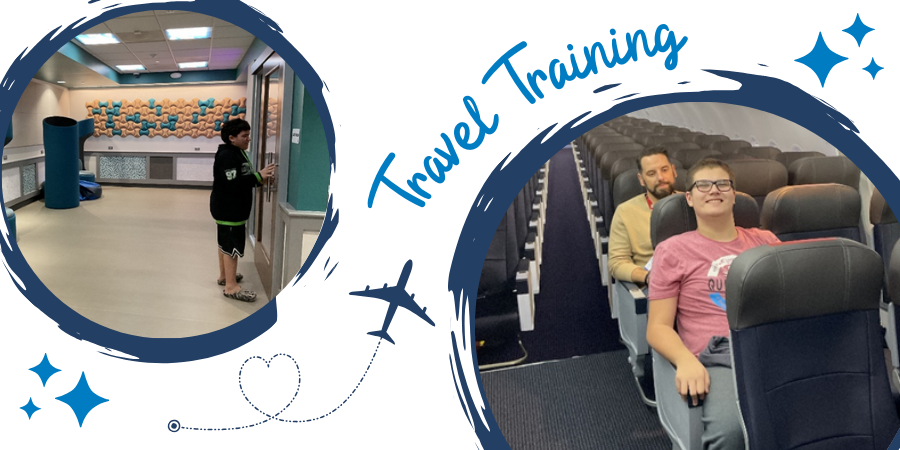The Watson Institute’s Social Center for Academic Achievement (WISCA) program for autistic students incorporates transition services into the curriculum which aim to prepare students for adulthood.
As part of this effort, Cassidy Hiles, the Transition Coordinator for WISCA, took a group of students to visit the Pittsburgh International Airport to learn more about traveling through the airport and the resources that are available to them and their families!
Traveling can be a challenge no matter how far you’re going or what method you’re taking. Airports can be particularly overwhelming for individuals with disabilities, especially those with sensory sensitivities. The crowds, the noise, and the unfamiliar surroundings can cause stress and anxiety.
For individuals traveling through the Pittsburgh International Airport, the staff and volunteers who work there offer a range of resources for families!
TSA Cares offers support to individuals with disabilities and their families who are traveling and may need additional resources to navigate through the airport safely and comfortably. When the students arrived at the Pittsburgh International Airport, they met with TSA Cares to learn more about the program and what they could expect to experience during the travel training. They also got to meet a TSA dog in training!
As part of the Travel Training program, students had the opportunity to go through the whole air travel process from check-in and passing through security clearance, to navigating the terminal, and ultimately baggage claim!
Sensory-Friendly Resources at the Airport
After a ride on the airport tram to the terminal side, they got to explore Presley’s Place in Concourse A. Presley’s Place is a sensory-friendly area (named for a former Watson student) that offers families a quiet space to wait for their flight.
Within Presley’s Place, there are comfortable areas to relax, a restroom with an adult changing station and adjustable sink, calming activities, adjustable lighting, and soundproof spaces. Of particular interest to the WISCA students was the walk-through model of an airplane cabin that is available for exploration!
The students enjoyed exploring the replica airplane cabin, walking through the aisles, and learning about the layout of the plane! Cassidy said that the “students loved exploring all of the hidden tunnels filled with neon lights, watching the bubble lamps, and getting to see the inside of the plane.”
Once the students completed their tour of the terminal and Presley’s Place, they visited baggage claim and learned how to check the screen for their flight number and corresponding baggage carousel. It was a truly educational experience for our students and introduced them to a number of valuable resources to assist them when traveling.
The visit to the airport is just one of the many ways Watson’s transition teams prepare students with disabilities for adulthood. Learn more about our special education transition services and how they are incorporated into daily activities in Watson’s school programs like WISCA!
